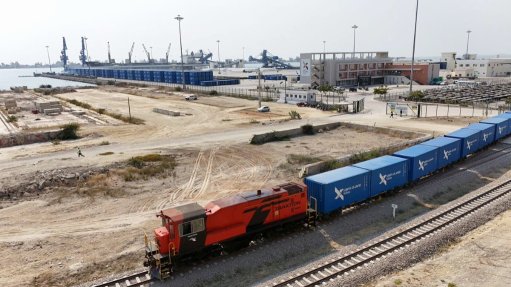Majoring in minors
Please fill me in, someone: Do we now have places in South Africa where conversations are sprinkled with phrases such as “Habari, rafiki yangu?” or words such as “Karibu”? To those who might be bemused, this is Swahili, the lingua franca in much of East Africa, and I ask because we were told a few years back, amid much fanfare, that South African high schools would start teaching this language in 2020.
Unless the gatekeepers in major South African newsrooms have deliberately excluded coverage of this pet project of those who preside over this country’s basic education system from the national media agenda, there has been little or no progress – about two years after D-Day. My more-than-cursory scanning of South African reportage has dredged up only one mention of the introduction of Swahili language teaching. And that’s not at any of our high schools, but at the University of Cape Town (UCT). Even so, it won’t be until 2023 that UCT will introduce Swahili as an elective course, with the aim of launching it as a major subject in 2028.
UCT is collaborating with the Institute of KiSwahili Studies at Tanzania’s University of Dar es Salaam and plans to eventually introduce a Swahili studies research programme at postgraduate level.
I have no problem with the Basic Education Department’s intention to broaden the language options available to South African learners by adding Swahili – a language spoken by an estimated 200-million people on the continent and beyond – to the school curriculum. My gripe is that we are “majoring in minors” regarding our education system, as someone once said.
Our “majoring in minors” does not end with the infatuation with Swahili; four years ago, a task team appointed by Basic Education Minister Angie Motshekga recommended that history be made compulsory from 2023 for learners in Grade 10 to Grade 12. For good measure, the department is cobbling together a new history curriculum, which is expected to be ready for submission to Umalusi, the education quality assurance body, before year-end. The intention is “to almost ease in the revised history curriculum from 2024”.
If it were up to me, the priority would be on the so-called STEM subjects of science, technology, engineering and mathematics, in which South African learners perform badly, even when compared with their peers from poorly endowed African countries. Get me right: it’s all very well to unite the nation through inculcating the correct history of this country in our children and to demonstrate our Pan-African credentials by ensuring that a language like Swahili is spoken on these shores.
My issue is that the trumpets seem to become mute when communicating the efforts being invested in STEM skills development, despite the fact that bodies such as the World Economic Forum agree that the STEM field will be the provider of a big chunk of the jobs of the future.
That much effort should be made to improve South African learners’ grasp of the STEM subjects is a no-brainer. According to the latest Trends in International Mathematics and Science Study, which analysed assessment data from 64 countries and was published in 2020, the overall mathematics and science scores of our Grade 5s placed them third from the bottom, with only Pakistan and the Philippines ranked lower.
Other low-scoring nations that performed better than South Africa in mathematics and science included Morocco, Kuwait and Saudi Arabia.
South African learners’ performance worsened when Grade 9 assessment data was analysed. In science, our kids were beaten by kids from all the participating countries, including those from low-benchmark nations such as Lebanon, Egypt, Kuwait, Morocco and Saudi Arabia. The mathematics performance was marginally better, with this country ranking second from bottom.
Article Enquiry
Email Article
Save Article
Feedback
To advertise email advertising@creamermedia.co.za or click here
Comments
Press Office
Announcements
What's On
Subscribe to improve your user experience...
Option 1 (equivalent of R125 a month):
Receive a weekly copy of Creamer Media's Engineering News & Mining Weekly magazine
(print copy for those in South Africa and e-magazine for those outside of South Africa)
Receive daily email newsletters
Access to full search results
Access archive of magazine back copies
Access to Projects in Progress
Access to ONE Research Report of your choice in PDF format
Option 2 (equivalent of R375 a month):
All benefits from Option 1
PLUS
Access to Creamer Media's Research Channel Africa for ALL Research Reports, in PDF format, on various industrial and mining sectors
including Electricity; Water; Energy Transition; Hydrogen; Roads, Rail and Ports; Coal; Gold; Platinum; Battery Metals; etc.
Already a subscriber?
Forgotten your password?
Receive weekly copy of Creamer Media's Engineering News & Mining Weekly magazine (print copy for those in South Africa and e-magazine for those outside of South Africa)
➕
Recieve daily email newsletters
➕
Access to full search results
➕
Access archive of magazine back copies
➕
Access to Projects in Progress
➕
Access to ONE Research Report of your choice in PDF format
RESEARCH CHANNEL AFRICA
R4500 (equivalent of R375 a month)
SUBSCRIBEAll benefits from Option 1
➕
Access to Creamer Media's Research Channel Africa for ALL Research Reports on various industrial and mining sectors, in PDF format, including on:
Electricity
➕
Water
➕
Energy Transition
➕
Hydrogen
➕
Roads, Rail and Ports
➕
Coal
➕
Gold
➕
Platinum
➕
Battery Metals
➕
etc.
Receive all benefits from Option 1 or Option 2 delivered to numerous people at your company
➕
Multiple User names and Passwords for simultaneous log-ins
➕
Intranet integration access to all in your organisation


















